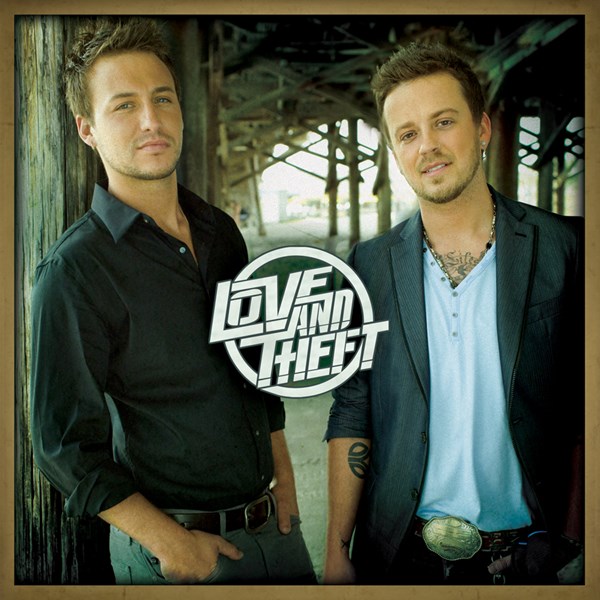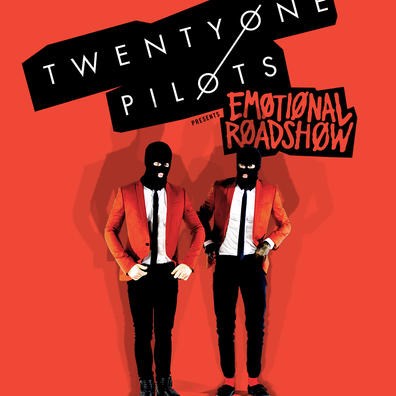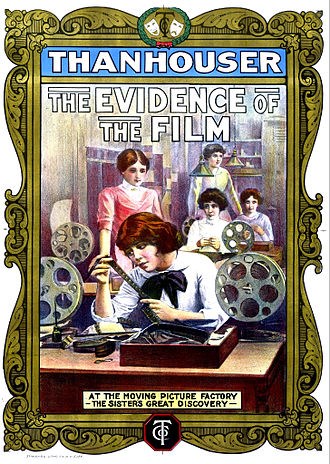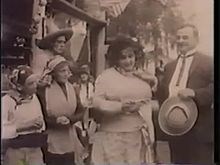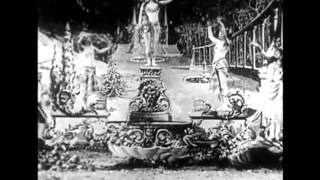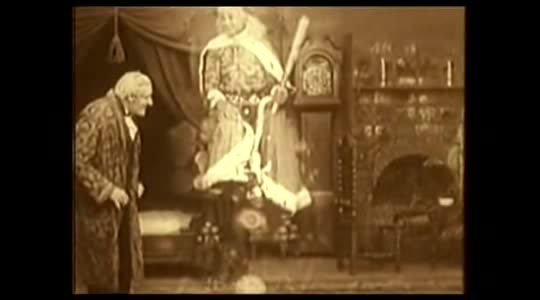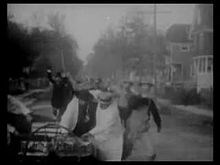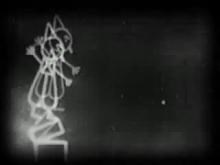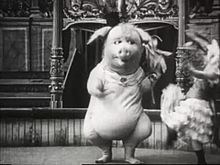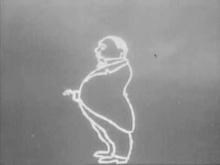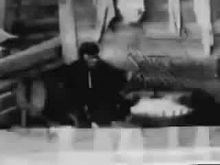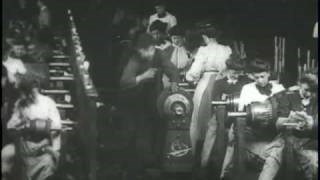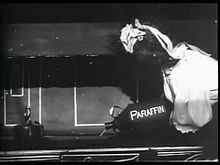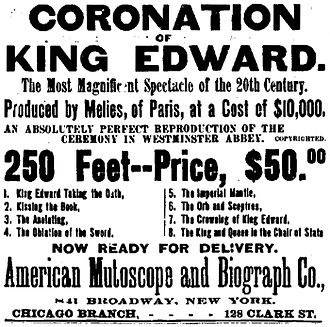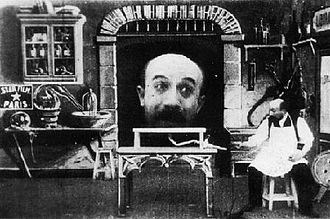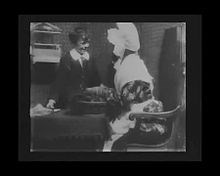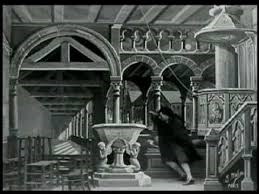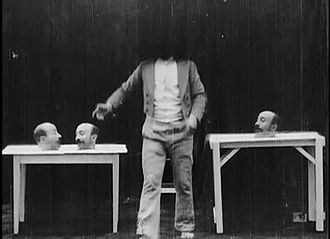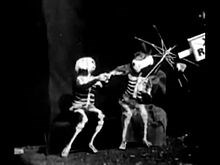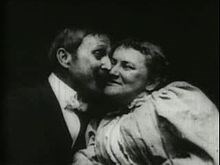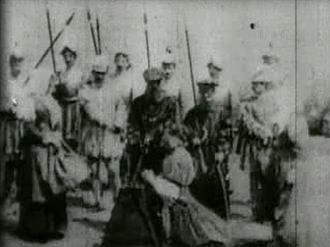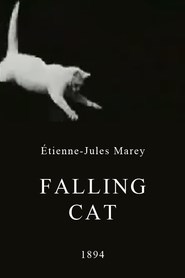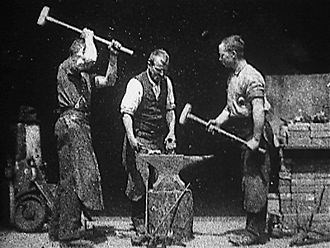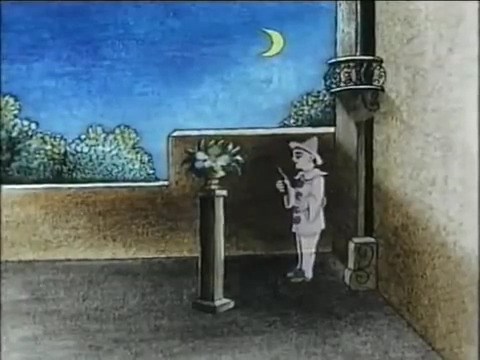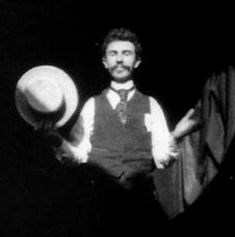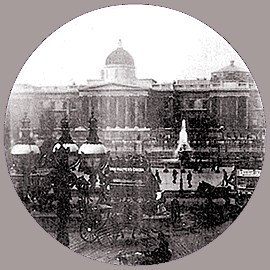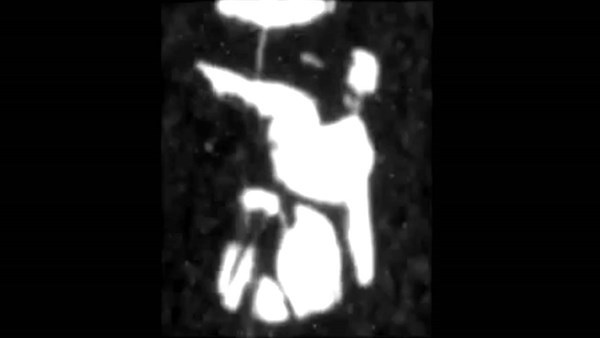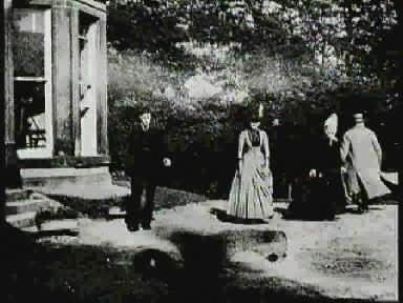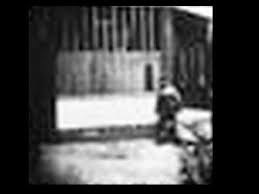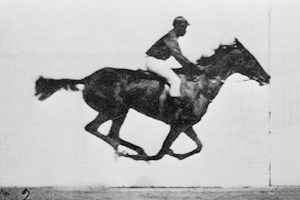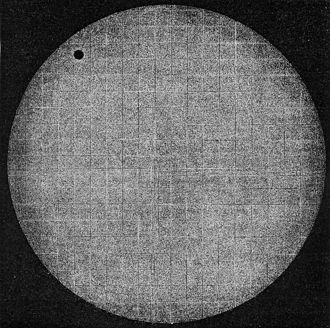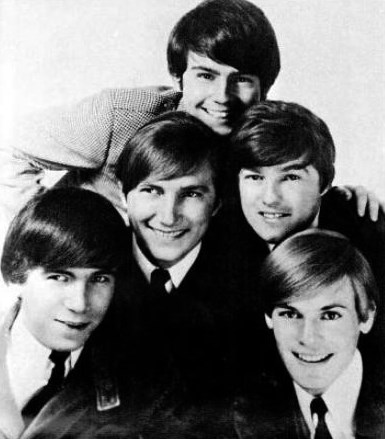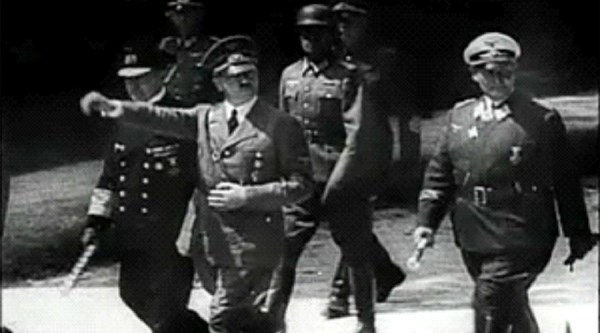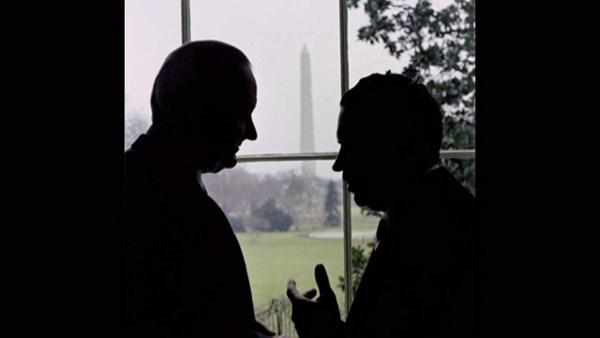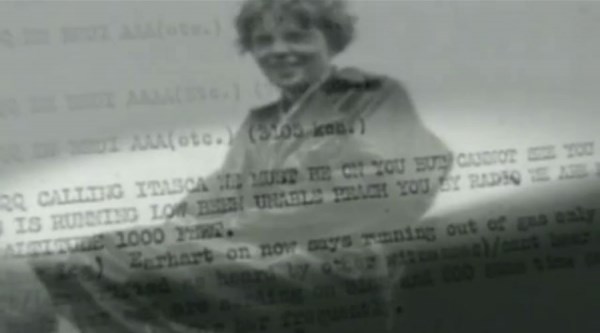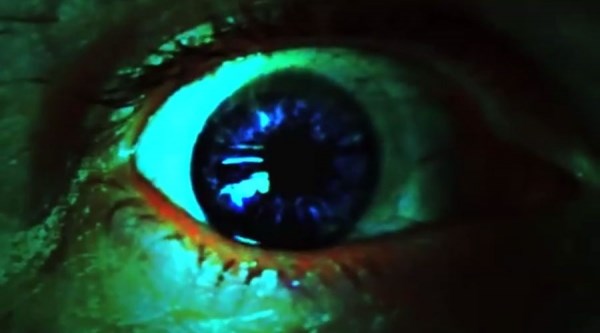
Jennifer Zink
United States
I'm optimistic, tenacious, and passionate. I love to create goals and meet them.
Notes & Photos
Attach Photo

May 2016: Today's Country - Love and Theft
April 2016: Metal - Born of Osiris
March 2016: Gospel - Kelly Price
February 2016: Nerdcore - MC Frontalot
January 2016: Shoegaze - teen suicide
December 2015: Indies Pop - Twenty One Pilots
I was really impressed with this list, so I decided to save it in my notes. I'm very familiar with the classical ideology, and I believe wholeheartedly that it is a superior form of education.
http://www.welltrainedmind.com/great-books/
GREAT BOOKS:
A defense and the (inevitable) list.
In high school, the classical student actively engages with the ideas of the past and present — not just reading about them, but evaluating them, tracing their development, and comparing them to other philosophies and opinions. This sounds abstract, but fortunately there’s a very practical way to engage in this conversation of ideas: Read, talk about, and write about the Great Books.
To some extent, the division between history and literature has always been artificial; we know about history from archaeology and anthropology, but our primary source of historical knowledge is the testimony of those who lived in the past. Without the books written by Aristotle, Homer, Plato, Virgil, and Caesar, we would know very little about the politics, religion, culture, and ideals of Greece and Rome.
The study of Great Books allows the past to speak for itself, combining history, creative writing, philosophy, politics, and ethics into a seamless whole. The goal of the rhetoric stage is a greater understanding of our own civilization, country, and place in time, stemming from an understanding of what has come before us. “The old books,” writes classical schoolmaster David Hicks, “lay a foundation for all later learning and life.” The student who has read Aristotle and Plato on human freedom, Thomas Jefferson on liberty, Frederick Douglass on slavery, and Martin Luther King on civil rights will read Toni Morrison’s Beloved with an understanding denied to the student who comes to the book without any knowledge of its roots.
Remember again that the goal of the classical education is not an exhaustive exploration of great literature. The student with a well-trained mind continues to read, think, and analyze long after classes have ended.
We have supplied lists of Great Books for each year of study; the ninth grade list is the shortest, the twelfth-grade list the most complex. A few words about list-making:
1) The lists are flexible. Depending on speed of reading and comprehension, the student might read eight titles, or fifteen, or thirty. No one will read all the books listed.
2) If the student finds a title impossible to understand after he’s had a good try at it, let him move on.
3) The lists are primarily made up of books that date to each period under study in History; the dates of composition or publication follow in parentheses. We’ve also included several excellent works of history covering the times under study. These have no dates following them.
4) Read the titles in chronological order, as they appear on the lists.
5) List making is a dangerous occupation. We’ve left important books off this list. We’ve put titles on it that you may find trivial. You will encounter many, many lists of important books as you home school, made up by people of all different ideologies; and those lists inevitably reflect ideology. You can always add or drop titles from our list.
Ninth grade, BC 5000-400 AD
The Bible: Genesis, Job
Epic of Gilgamesh (c. 2500 BC)
The Iliad and The Odyssey, Homer (c. 850 BC)
A Day in Old Athens by William S. Davis
History of the Persian Wars by Herodotus (485-424 BC)
The History of the Peloponnesian War by Thucydides
(Livingston abridged edition) (460-395 BC)
Sophocles, Oedipus Rex (c. 440 BC)
Medea, Euripides (c. 431 BC)
The Frogs, Aristophanes (405 BC)
Republic, Symposium, Plato (c. 387 BC)
On Poetics, Ethics, Aristotle (384-322 BC)
A Day in Old Rome by William S. Davis
The Bible: The Book of Daniel (c. 165 BC)
On the Nature of Things, Lucretius (c. 60 BC)
De republic, Cicero (54 BC)
The Aeneid by Virgil (c. 30 BC)
Metamorphoses by Ovid (c. 5)
The Bible: Paul, 1 & 2 Letters to the Corinthians (c. 58 AD)
The Wars of the Jews by Josephus (c. 68)
The Lives of the Noble Grecians and Roman, Plutarch (c.100)
The Annals of Tacitus (c. 117)
On the Incarnation by Athanasius (c. 300)
Tenth grade, 400-1600
Augustine, Confessions and City of God, Book 8 (c. 411)
The Consolation of Philosophy by Boethius (524)
The Koran (selections) (c. 650)
Beowulf (c. 1000)
The Mabinogion (c. 1050)
1066: The Year of Conquest, Howartz Dand
Cur Deus Homo by Anselm (c. 1090)
Life in a Medieval Barony, William Stearns Davis
The Magna Carta, James Daugherty
Aquinas: Selected Writings (ed. Robert Goodwin) (c. 1273)
The Inferno, Dante (1320)
Gawain and the Green Knight (c. 1400)
Chaucer, The Canterbury Tales (selections)(c. 1400)
Malory, Le Morte d’Arthur (selections)(c. 1470)
Education of a Christian Prince (selections)(1510)
The Prince by Machiavelli (1513)
Utopia by Thomas More (1516)
Commentary on Galatians, Martin Luther (c. 1520)
Institutes of the Christian Religion, Calvin (selections) (1536)
Aztecs and Spaniards, Albert Marrin
Empires Lost and Won: The Spanish Heritage in the Southwest, Albert Marrin
Faustus, Marlowe (1588)
The Faerie Queene, Spenser (1590)
Julius Caesar (1599), Hamlet (1600), or other plays, Shakespeare
Life in Elizabethan Days, William Stearns Davis
Eleventh grade, 1600-1850
Cervantes, Don Quixote (abridged)(1605)
Novum Organum, Francis Bacon (1620)
Divine Meditations, John Donne (c. 1635)
Principles of philosophy, Rene Descartes (1644)
Paradise Lost (selections), Milton (1664)
Pensees, Pascal (1670)
Pilgrim’s Progress by John Bunyan (1678)
“An Essay Concerning Human Understanding,” John Locke (1690)
Gulliver’s Travels, Swift (1726)
“On American Taxation,” Burke (1774)
The War for Independence, Albert Marrin
“The Social Contract,” Rousseau (1762)
The Autobiography of Benjamin Franklin (1771)
The Declaration of Independence (1776)
“Critique of Pure Reason,” Kant (1781)
The Federalist Papers, Hamilton et.al.
The Constitution of the United States (ratified 1788)
Songs of Innocence and Experience, Blake (1789)
“The Rights of Man,” Paine (1792)
Lyrical Ballads, Wordsworth and Coleridge (1798)
Pride and Prejudice, Austen (1813)
Frankenstein, Mary Shelley (1818)
“Ode to a Nightingale” and other poems of Keats (1820s)
The Last of the Mohicans, Cooper (1826)
“The Lady of Shalott” and other poems of Tennyson (1832)
“The Fall of the House of Usher” and other stories of Poe (1839)
“Self-Reliance,” Emerson (1844)
Jane Eyre, Charlotte Bronte (1847)
Moby Dick, Melville (1851)
Twelfth grade, 1850-present day
Communist Manifesto, Marx and Engles (1848)
de Tocqueville, Democracy in America (1805-1860)
Uncle Tom’s Cabin, Stowe (1852)
Walden, Thoreau (1854)
Leaves of Grass, Walt Whitman (1855)
Crime and Punishment, Dostoyevsky (1856)
On the Origin of Species, Darwin (1859)
Great Expectations, Dickens (1861)
Unconditional Surrender: U.S. Grant and the Civil War,
Albert Marrin
Virginia’s General: Robert E. Lee, Albert Marrin
“Gettysburg Address,” Lincoln (1863)
Abraham Lincoln: The War Years, Sandburg (Pulitzer
biography, 1940)
War and Peace, Tolstoy (1864)
The Return of the Native, Hardy (1878)
Thus Spoke Zarathustra, Nietzsche (1883)
Huckleberry Finn, Twain (1884)
Selected Poems, W. B. Yeats (1895)
The Interpretation of Dreams, Freud (1900)
“The Innocence of Father Brown,” Chesterton (1911)
Selected Poems, Wilfrid Owen (1918)
“A Poem with Notes and Grace Notes,” Frost (Pulitzer, 1924)
“The Trial,” Kafka (1925)
“Murder in the Cathedral,” T. S. Eliot (1935)
“Our Town,” Thornton Wilder (1938)
The Grapes of Wrath, Steinbeck (1939)
Mein Kampf, Hitler (1939)
Animal Farm, Orwell (1945)
The Diary of Anne Frank, Anne Frank (1947)
Invisible Man, Ellison (1952)
Mere Christianity, Lewis (1952)
“The Crucible,” Miller (1953)
“A Man for All Seasons, Bolt (1962)
“Why We Can’t Wait,” Martin Luther King Jr. (1964)
“Rosencrantz and Guildenstern are Dead,” Stoppard (1967)
“The Gulag Archipelago,” Solezhenitsyn (1974)
Night, Elie Wiesel (1982)
http://www.welltrainedmind.com/great-books/
GREAT BOOKS:
A defense and the (inevitable) list.
In high school, the classical student actively engages with the ideas of the past and present — not just reading about them, but evaluating them, tracing their development, and comparing them to other philosophies and opinions. This sounds abstract, but fortunately there’s a very practical way to engage in this conversation of ideas: Read, talk about, and write about the Great Books.
To some extent, the division between history and literature has always been artificial; we know about history from archaeology and anthropology, but our primary source of historical knowledge is the testimony of those who lived in the past. Without the books written by Aristotle, Homer, Plato, Virgil, and Caesar, we would know very little about the politics, religion, culture, and ideals of Greece and Rome.
The study of Great Books allows the past to speak for itself, combining history, creative writing, philosophy, politics, and ethics into a seamless whole. The goal of the rhetoric stage is a greater understanding of our own civilization, country, and place in time, stemming from an understanding of what has come before us. “The old books,” writes classical schoolmaster David Hicks, “lay a foundation for all later learning and life.” The student who has read Aristotle and Plato on human freedom, Thomas Jefferson on liberty, Frederick Douglass on slavery, and Martin Luther King on civil rights will read Toni Morrison’s Beloved with an understanding denied to the student who comes to the book without any knowledge of its roots.
Remember again that the goal of the classical education is not an exhaustive exploration of great literature. The student with a well-trained mind continues to read, think, and analyze long after classes have ended.
We have supplied lists of Great Books for each year of study; the ninth grade list is the shortest, the twelfth-grade list the most complex. A few words about list-making:
1) The lists are flexible. Depending on speed of reading and comprehension, the student might read eight titles, or fifteen, or thirty. No one will read all the books listed.
2) If the student finds a title impossible to understand after he’s had a good try at it, let him move on.
3) The lists are primarily made up of books that date to each period under study in History; the dates of composition or publication follow in parentheses. We’ve also included several excellent works of history covering the times under study. These have no dates following them.
4) Read the titles in chronological order, as they appear on the lists.
5) List making is a dangerous occupation. We’ve left important books off this list. We’ve put titles on it that you may find trivial. You will encounter many, many lists of important books as you home school, made up by people of all different ideologies; and those lists inevitably reflect ideology. You can always add or drop titles from our list.
Ninth grade, BC 5000-400 AD
The Bible: Genesis, Job
Epic of Gilgamesh (c. 2500 BC)
The Iliad and The Odyssey, Homer (c. 850 BC)
A Day in Old Athens by William S. Davis
History of the Persian Wars by Herodotus (485-424 BC)
The History of the Peloponnesian War by Thucydides
(Livingston abridged edition) (460-395 BC)
Sophocles, Oedipus Rex (c. 440 BC)
Medea, Euripides (c. 431 BC)
The Frogs, Aristophanes (405 BC)
Republic, Symposium, Plato (c. 387 BC)
On Poetics, Ethics, Aristotle (384-322 BC)
A Day in Old Rome by William S. Davis
The Bible: The Book of Daniel (c. 165 BC)
On the Nature of Things, Lucretius (c. 60 BC)
De republic, Cicero (54 BC)
The Aeneid by Virgil (c. 30 BC)
Metamorphoses by Ovid (c. 5)
The Bible: Paul, 1 & 2 Letters to the Corinthians (c. 58 AD)
The Wars of the Jews by Josephus (c. 68)
The Lives of the Noble Grecians and Roman, Plutarch (c.100)
The Annals of Tacitus (c. 117)
On the Incarnation by Athanasius (c. 300)
Tenth grade, 400-1600
Augustine, Confessions and City of God, Book 8 (c. 411)
The Consolation of Philosophy by Boethius (524)
The Koran (selections) (c. 650)
Beowulf (c. 1000)
The Mabinogion (c. 1050)
1066: The Year of Conquest, Howartz Dand
Cur Deus Homo by Anselm (c. 1090)
Life in a Medieval Barony, William Stearns Davis
The Magna Carta, James Daugherty
Aquinas: Selected Writings (ed. Robert Goodwin) (c. 1273)
The Inferno, Dante (1320)
Gawain and the Green Knight (c. 1400)
Chaucer, The Canterbury Tales (selections)(c. 1400)
Malory, Le Morte d’Arthur (selections)(c. 1470)
Education of a Christian Prince (selections)(1510)
The Prince by Machiavelli (1513)
Utopia by Thomas More (1516)
Commentary on Galatians, Martin Luther (c. 1520)
Institutes of the Christian Religion, Calvin (selections) (1536)
Aztecs and Spaniards, Albert Marrin
Empires Lost and Won: The Spanish Heritage in the Southwest, Albert Marrin
Faustus, Marlowe (1588)
The Faerie Queene, Spenser (1590)
Julius Caesar (1599), Hamlet (1600), or other plays, Shakespeare
Life in Elizabethan Days, William Stearns Davis
Eleventh grade, 1600-1850
Cervantes, Don Quixote (abridged)(1605)
Novum Organum, Francis Bacon (1620)
Divine Meditations, John Donne (c. 1635)
Principles of philosophy, Rene Descartes (1644)
Paradise Lost (selections), Milton (1664)
Pensees, Pascal (1670)
Pilgrim’s Progress by John Bunyan (1678)
“An Essay Concerning Human Understanding,” John Locke (1690)
Gulliver’s Travels, Swift (1726)
“On American Taxation,” Burke (1774)
The War for Independence, Albert Marrin
“The Social Contract,” Rousseau (1762)
The Autobiography of Benjamin Franklin (1771)
The Declaration of Independence (1776)
“Critique of Pure Reason,” Kant (1781)
The Federalist Papers, Hamilton et.al.
The Constitution of the United States (ratified 1788)
Songs of Innocence and Experience, Blake (1789)
“The Rights of Man,” Paine (1792)
Lyrical Ballads, Wordsworth and Coleridge (1798)
Pride and Prejudice, Austen (1813)
Frankenstein, Mary Shelley (1818)
“Ode to a Nightingale” and other poems of Keats (1820s)
The Last of the Mohicans, Cooper (1826)
“The Lady of Shalott” and other poems of Tennyson (1832)
“The Fall of the House of Usher” and other stories of Poe (1839)
“Self-Reliance,” Emerson (1844)
Jane Eyre, Charlotte Bronte (1847)
Moby Dick, Melville (1851)
Twelfth grade, 1850-present day
Communist Manifesto, Marx and Engles (1848)
de Tocqueville, Democracy in America (1805-1860)
Uncle Tom’s Cabin, Stowe (1852)
Walden, Thoreau (1854)
Leaves of Grass, Walt Whitman (1855)
Crime and Punishment, Dostoyevsky (1856)
On the Origin of Species, Darwin (1859)
Great Expectations, Dickens (1861)
Unconditional Surrender: U.S. Grant and the Civil War,
Albert Marrin
Virginia’s General: Robert E. Lee, Albert Marrin
“Gettysburg Address,” Lincoln (1863)
Abraham Lincoln: The War Years, Sandburg (Pulitzer
biography, 1940)
War and Peace, Tolstoy (1864)
The Return of the Native, Hardy (1878)
Thus Spoke Zarathustra, Nietzsche (1883)
Huckleberry Finn, Twain (1884)
Selected Poems, W. B. Yeats (1895)
The Interpretation of Dreams, Freud (1900)
“The Innocence of Father Brown,” Chesterton (1911)
Selected Poems, Wilfrid Owen (1918)
“A Poem with Notes and Grace Notes,” Frost (Pulitzer, 1924)
“The Trial,” Kafka (1925)
“Murder in the Cathedral,” T. S. Eliot (1935)
“Our Town,” Thornton Wilder (1938)
The Grapes of Wrath, Steinbeck (1939)
Mein Kampf, Hitler (1939)
Animal Farm, Orwell (1945)
The Diary of Anne Frank, Anne Frank (1947)
Invisible Man, Ellison (1952)
Mere Christianity, Lewis (1952)
“The Crucible,” Miller (1953)
“A Man for All Seasons, Bolt (1962)
“Why We Can’t Wait,” Martin Luther King Jr. (1964)
“Rosencrantz and Guildenstern are Dead,” Stoppard (1967)
“The Gulag Archipelago,” Solezhenitsyn (1974)
Night, Elie Wiesel (1982)
Photo added to goal Learn 50 new things by clicking the random articles button on Wikipedia
27. Adam Baldwin - Completed 12/14/15
I had only learned of Buy Nothing Day maybe two weeks prior to the date, and I thought it was a fabulous idea. It was a little difficult not to make any purchases, but I loved keeping my money where it belongs...right here with me. - Completed 11/27/15
I've been wanting to do this for a long time! My daughter and I got our second ear piercings together. - Completed 11/18/15
1913: The Evidence of the Film
1912: A Dash Through the Clouds
1911: Les aventures de baron de Munchhausen
1910: A Christmas Carol
1909: The Curtain Pole
1908: Fantasmagorie
1907: Le Cochon Danseur (The Dancing Pig)
1906: Humorous Phases of Funny Faces
1905: The Weavers
1904: Westinghouse Works - Girls Winding Armatures
1903: Mary Jane's Mishap
1902: The Coronation of Edward VII
1901: L'homme à la tête de caoutchouc (The Man With The Rubber Head)
1900: Grandma's Reading Glass
1899: The Devil in a Convent
Photo added to goal Learn 50 new things by clicking the random articles button on Wikipedia
26. UDP-N-acetylglucosamine 2-epimerase - Completed 11/21/15
1898: The Four Troublesome Heads
Photo added to goal Learn 50 new things by clicking the random articles button on Wikipedia
25. Logname - Completed 11/21/15
Photo added to goal Learn 50 new things by clicking the random articles button on Wikipedia
24. Roundhay Garden Scene - Completed 11/21/15
1897: The X-Rays
1896: The Kiss
1895: The Execution of Mary Stuart
1894: Falling Cat
Photo added to goal Learn 50 new things by clicking the random articles button on Wikipedia
23. Blacksmith Scene - Completed 11/21/15
1893: Blacksmith Scene
1892: Pauvre Pierrot (Poor Pete)
Photo added to goal Learn 50 new things by clicking the random articles button on Wikipedia
22. Un bon bock (aka A Good Beer) - Completed 11/21/15
1891: Dickson Greeting
Photo added to goal Learn 50 new things by clicking the random articles button on Wikipedia
21. Wordsworth Donisthorpe - Completed 11/21/15
1890: London's Trafalgar Square
Photo added to goal Learn 50 new things by clicking the random articles button on Wikipedia
20. Barry Fitzgerald - Completed 11/21/15
1889: Monkeyshines
1888: Roundhay Garden Scene
1887: Man Walking Around A Corner
1886: None made
1885: None made
1884: None made
1883: None made
1882: None made
1881: None made
1880: None made
1879: None made
1885: None made
1884: None made
1883: None made
1882: None made
1881: None made
1880: None made
1879: None made
1878: Sallie Gardner at a Gallop
1877: None made
1876: None made
1875: None made
1876: None made
1875: None made
1874: Transit of Venus
Photo added to goal Learn 50 new things by clicking the random articles button on Wikipedia
19. 1886 in film - Completed 11/21/15
Photo added to goal Learn 50 new things by clicking the random articles button on Wikipedia
18. Edward Everett Horton - Completed 11/21/15
Photo added to goal Learn 50 new things by clicking the random articles button on Wikipedia
17. Gavin Gordon (actor) - Completed 11/21/15
Photo added to goal Learn 50 new things by clicking the random articles button on Wikipedia
16. Florence Turner - Completed 11/21/15
Photo added to goal Learn 50 new things by clicking the random articles button on Wikipedia
15. 19th century in film - Completed 11/21/15
Photo added to goal Learn 50 new things by clicking the random articles button on Wikipedia
14. Monkeyshines - Completed 11/21/15
Photo added to goal Learn 50 new things by clicking the random articles button on Wikipedia
13. Cinematograph - Completed 11/21/15
Photo added to goal Learn 50 new things by clicking the random articles button on Wikipedia
12. Zoopraxiscope - Completed 11/21/15
Photo added to goal Learn 50 new things by clicking the random articles button on Wikipedia
11. Praxinoscope - Completed 11/21/15
Photo added to goal Learn 50 new things by clicking the random articles button on Wikipedia
10. 1870s in film - Completed 11/21/15
Brave New World by Aldous Huxley
Forever by Judy Blume
I Know Why the Caged Bird Sings by Maya Angelou
Photo added to goal Learn 50 new things by clicking the random articles button on Wikipedia
9. Black comedy - Completed 11/21/15
Photo added to goal Learn 50 new things by clicking the random articles button on Wikipedia
8. Haiku Stairs - Completed 11/21/15
Photo added to goal Learn 50 new things by clicking the random articles button on Wikipedia
7. Bedouin - Completed 11/21/15
Photo added to goal Learn 50 new things by clicking the random articles button on Wikipedia
6. 120 Days of Sodom, or the School of Libertinism (book) - Completed 11/21/15
Photo added to goal Learn 50 new things by clicking the random articles button on Wikipedia
5. Charles Laughton - Completed 11/20/15
Photo added to goal Learn 50 new things by clicking the random articles button on Wikipedia
4. Coprophagia - Completed 11/20/15
25. If you can't explain it to a six year old, you don't understand it yourself. ~ Albert Einstein
24. Yesterday is gone. Tomorrow has not yet come. We have only today. Let us begin. ~ Mother Teresa
23. Never be afraid to raise your voice for honesty and truth and compassion against injustice and lying and greed. If people all over the world...would do this, it would change the earth. ~ William Faulkner
22. When I despair, I remember that all through history the way of truth and love have always won. There have been tyrants and murderers, and for a time, they can seem invincible, but in the end, they always fall. Think of it--always. ~ Mahatma Gandhi
21. God provides the wind, Man must raise the sail. ~ Augustine of Hippo
Question #1 answered on 11/9/15.
November 2015: Oldies - Five Americans
#20
#19
#18
#17
#16
#15
14. Scared is what you're feeling. Brave is what you're doing. ~ Emma Donoghue
13. There is not a particle of life which does not bear poetry within it. ~ Gustave Flaubert
12. There are no wrong turnings. Only paths we had not known we were meant to walk. ~ Guy Gavriel Kay
Photo added to goal Learn 50 new things by clicking the random articles button on Wikipedia
3. Peak oil - Completed 11/3/15
Photo added to goal Learn 50 new things by clicking the random articles button on Wikipedia
2. Colin Campbell (geologist) - Completed 11/3/15
Photo added to goal Learn 50 new things by clicking the random articles button on Wikipedia
1. Malthusian catastrophe - Completed 11/3/15
I'm thinking about going to the butterfly garden at the Ashland Nature Center (a part of the Delaware Nature Society), so for now I'm going to save the link in this handy-dandy spot.
http://www.delawarenaturesociety.org/
http://www.delawarenaturesociety.org/
I gave my teen daughter free reign with my hair and she did a GREAT job! (November 2, 2015)
Send a secret to PostSecret - Completed 10/31/15
This was freeing, relieving, scary...glad I did it.
I am a book addict. I’m grateful to my dealers, um, friends for recommending these new ones to me. I still need to make some choices because a few friends had several super books in mind! Oh, what a lovely dilemma lies before me…
1. Brotherhood (Assassin's Creed #2): Recommended by Mike S.
2. Orphan Train, 11/22/63, The Invention of Wings, or The Secret Life of Bees: Recommended by Susan I.
3. Necessary Lies, Younger, or Orphan Train: Recommended by Val A.
4. Praying the Lord's Prayer: Recommended by Tonya A.
5. Anything from Ann Rice or Mario Puzo: Recommended by Butch R.
6. The Gifting series, The Throne of Glass series, The Game of Thrones series, The Premonition series by Amy Bartol, or The Outlander series: Recommended by Donna S.
7. Kindred: Recommended by Jen G.
8. The Book Thief: Recommended by Kim S.
9. The Road: Recommended by Nick N.
10. Outlander or any books by Stephen King or Dean Koontz: Recommended by Christine R.
11. The Alex Cross series: Recommended by Eileen H.
12. The Princess Bride: Recommended by Charles H.
13. The Hunger Games trilogy: Recommended by Missy M.
14. Patricia Cornwell’s Scarpetta series: Recommended by Cindy D.
15. The Glass Castle by Jennette Walls, a true story: Recommended by Jane M.
16. Any Clive Cussler book: Recommended by Steve S.
17. Anything by David McCullough: Recommended by Marge L.
18. World War Z: Recommended by Dan S.
19. A Christmas Promise: Recommended by Alice H.
20. Dame Agatha Abroad (Murder on the Orient Express / They Came to Bagdad / Murder in Mesopotamia): Recommended by Lexus L.
1. Brotherhood (Assassin's Creed #2): Recommended by Mike S.
2. Orphan Train, 11/22/63, The Invention of Wings, or The Secret Life of Bees: Recommended by Susan I.
3. Necessary Lies, Younger, or Orphan Train: Recommended by Val A.
4. Praying the Lord's Prayer: Recommended by Tonya A.
5. Anything from Ann Rice or Mario Puzo: Recommended by Butch R.
6. The Gifting series, The Throne of Glass series, The Game of Thrones series, The Premonition series by Amy Bartol, or The Outlander series: Recommended by Donna S.
7. Kindred: Recommended by Jen G.
8. The Book Thief: Recommended by Kim S.
9. The Road: Recommended by Nick N.
10. Outlander or any books by Stephen King or Dean Koontz: Recommended by Christine R.
11. The Alex Cross series: Recommended by Eileen H.
12. The Princess Bride: Recommended by Charles H.
13. The Hunger Games trilogy: Recommended by Missy M.
14. Patricia Cornwell’s Scarpetta series: Recommended by Cindy D.
15. The Glass Castle by Jennette Walls, a true story: Recommended by Jane M.
16. Any Clive Cussler book: Recommended by Steve S.
17. Anything by David McCullough: Recommended by Marge L.
18. World War Z: Recommended by Dan S.
19. A Christmas Promise: Recommended by Alice H.
20. Dame Agatha Abroad (Murder on the Orient Express / They Came to Bagdad / Murder in Mesopotamia): Recommended by Lexus L.
Read a comic book: Mad Magazine - Completed 10/31/15
Mad Magazine - Completed 10/31/15. I loved this as a kid and I found out I still do! This was a great trip down memory lane.
Watch 20 documentaries - Completed 10/31/15
Have a zombie movie marathon - Completed 10/29/15
Nazis Today - Completed 10/31/15
Top Ten Secret Societies - Completed 10/31/15
Top 10 Conspiracies Of All Time - Completed 10/31/15
Rise Of The Machines - Completed 10/30/15

